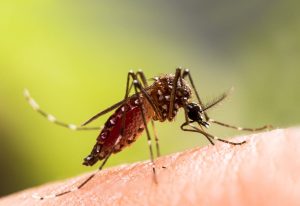Kids who devote some of their free time to volunteer work may not only help others, but also themselves.
That’s according to a new study that found U.S. kids who spend time in community service are often thriving, physically and mentally.
Overall, kids who’d volunteered in the past year were in better physical health, had a more positive outlook on life, and were less likely to have anxiety, depression or behavioral problems than their peers who did not do volunteer work.
The findings, published May 30 in the journal JAMA Network Open, do not answer the chicken-and-egg question, researchers noted: Kids who were already high on the well-being scale may have been more apt to volunteer.
“We can’t say this is cause-and-effect,” said lead researcher Kevin Lanza, an assistant professor at UTHealth Houston School of Public Health.
That said, Lanza thinks the findings set the stage for a study that follows kids over time, to see whether volunteerism promotes better physical and mental well-being down the road.
There are, of course, already plenty of reasons to encourage volunteerism, Lanza pointed out. But if it also benefits young volunteers’ well-being, then it would be a “win-win,” he said.
“There could be a great opportunity to promote volunteering as a public health measure,” Lanza said.
Many studies over the years have linked volunteerism to better physical and mental health, but nearly all have focused on adults — often older adults. A couple of studies have found that teenage volunteers may be in better health, and more engaged at school, than their peers. But the studies involved only small groups of teens.
So Lanza’s team decided to dig into data from a long-running national survey tracking the health and well-being of U.S. children and teenagers. They focused on nearly 52,000 kids ages 6 to 17 who were part of the 2019-2020 survey period.
Overall, one-third of children and just over half of teens had done volunteer work in the past year, according to parents’ responses.
In general, those parents gave higher ratings to their kids’ well-being than parents whose kids did not do volunteer work. They were one-third more likely to say their child was in “very good” to “excellent” health, and anywhere from 18% to 35% less likely to say their child had dealt with depression or anxiety, or had behavioral problems, in the past year.
Kids who volunteered were also 66% more likely to be “flourishing” — which, Lanza said, could be summed up as an “overall drive for life.” In this survey, kids’ flourishing was based on how parents answered questions about their kids’ curiosity, willingness to see tasks through, and ability to stay calm in the face of challenges.
Ying Chen is a research scientist at Harvard University’s Center for Health and Happiness. She praised the study’s focus on kids, and the way it looked at multiple facets of well-being.
But like Lanza, she cautioned on the cause-effect question. For one, Chen said, parents who encourage their kids to volunteer are likely “pro-social” and may themselves be quite healthy and happy.
She also noted that the study results are based on parents’ reports, which can be biased.
Those caveats made, there are also reasons to believe volunteerism can boost kids’ well-being, both researchers said.
If volunteering gets kids off their devices and into the world, Lanza said, there’s the social engagement. And it’s a particular type of engagement — with other people who want to work for a common, positive purpose.
“Volunteering is community-building,” Lanza said.
And with younger children, he pointed out, any volunteer work is probably going to involve their parents or other adults in their lives — whether that’s planting trees, helping to clean up the neighborhood park or packing boxes of donated food.
An opportunity to spend more time with that pro-social parent, in action, could boost kids’ well-being, Lanza said.
No kid should be forced into volunteering, both researchers stressed. What’s important, Lanza said, is that all kids — regardless of family income and resources — have the opportunity.
Historically, he noted, volunteerism has been a “luxury item” — done by people with the time and means for it.
“The onus should be on society to make volunteer opportunities more accessible,” Lanza said.
That’s especially true, he noted, if those opportunities stand to benefit volunteers’ well-being, too.
More information
The University of Maryland has more on the health benefits of volunteering.
SOURCES: Kevin Lanza, PhD, assistant professor, epidemiology, human genetics and environmental sciences, UTHealth Houston School of Public Health; Ying Chen, ScD, research scientist, Lee Kum Sheung Center for Health and Happiness, Harvard T.H. Chan School of Public Health, Boston; JAMA Network Open, May 30, 2023, online
Source: HealthDay
Copyright © 2024 HealthDay. All rights reserved.

-300x200.jpeg)









-300x241.jpeg)




